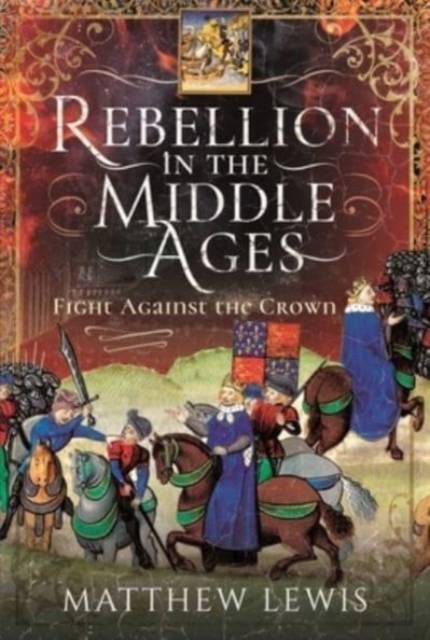
- Afhalen na 1 uur in een winkel met voorraad
- Gratis thuislevering in België vanaf € 30
- Ruim aanbod met 7 miljoen producten
- Afhalen na 1 uur in een winkel met voorraad
- Gratis thuislevering in België vanaf € 30
- Ruim aanbod met 7 miljoen producten
Zoeken
€ 34,95
+ 69 punten
Omschrijving
Shakespeare's Henry IV lamented 'Uneasy lies the head that wears the crown'. It was true of that king's reign and of many others before and after. From Hereward the Wake's guerilla war, resisting the Norman invasion of William the Conqueror, through the Anarchy, the murder of Thomas Becket, the rebellions of Henry II's sons, the deposition of Edward II, the Peasants' Revolt and the rise of the over-mighty noble subject that led to the Wars of the Roses, kings throughout the medieval period came under threat from rebellions and resistance that sprang from the nobility, the Church, and even the general population.
Serious rebellions arrived on a regular cycle throughout the period, fracturing and transforming England into a nation to be reckoned with. Matthew Lewis seeks to examine the causes behind the insurrections and how they influenced the development of England from the Norman Conquest until the Tudor period. Each rebellion's importance and impact is assessed both individually and as part of a larger movement to examine how rebellions helped to build England.
Serious rebellions arrived on a regular cycle throughout the period, fracturing and transforming England into a nation to be reckoned with. Matthew Lewis seeks to examine the causes behind the insurrections and how they influenced the development of England from the Norman Conquest until the Tudor period. Each rebellion's importance and impact is assessed both individually and as part of a larger movement to examine how rebellions helped to build England.
Specificaties
Betrokkenen
- Auteur(s):
- Uitgeverij:
Inhoud
- Aantal bladzijden:
- 248
- Taal:
- Engels
Eigenschappen
- Productcode (EAN):
- 9781526727930
- Verschijningsdatum:
- 3/02/2022
- Uitvoering:
- Hardcover
- Formaat:
- Genaaid
- Afmetingen:
- 155 mm x 234 mm
- Gewicht:
- 636 g

Alleen bij Standaard Boekhandel
+ 69 punten op je klantenkaart van Standaard Boekhandel
Beoordelingen
We publiceren alleen reviews die voldoen aan de voorwaarden voor reviews. Bekijk onze voorwaarden voor reviews.











